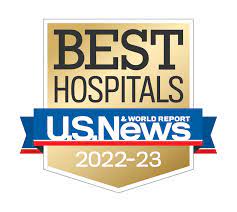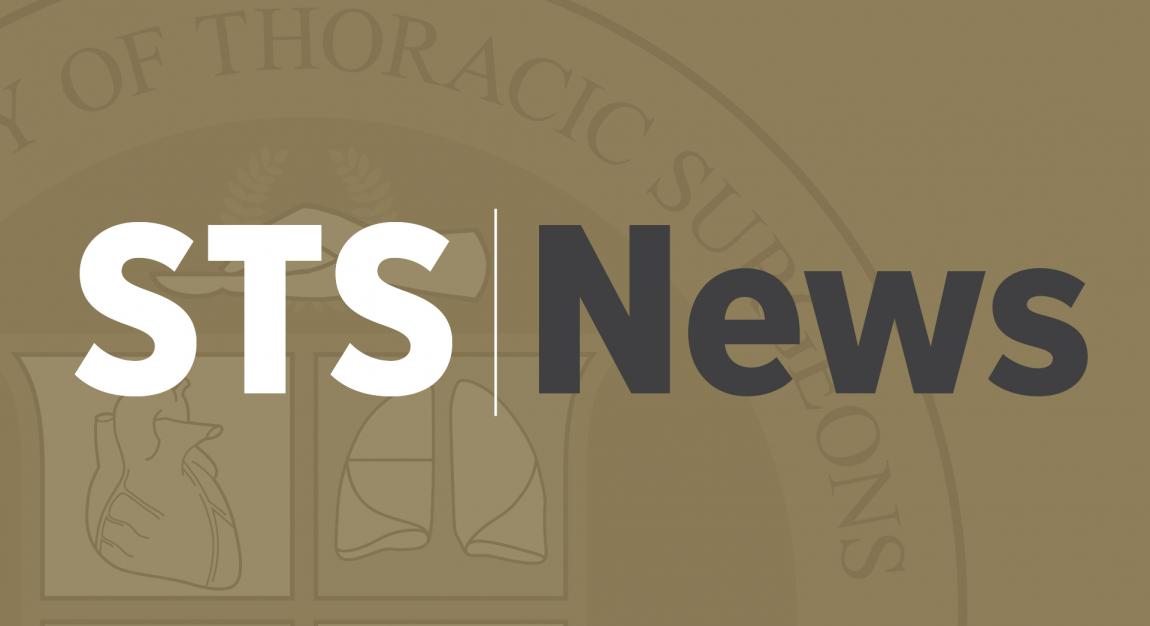The trusted data in the STS National Database™ has been a cornerstone for scientific research and quality improvement for more than three decades—and recently its General Thoracic (GTSD) and Congenital Heart (CHSD) surgery databases made major leaps toward demonstrating their importance across the United States.
GTSD Participants Can Earn Credit for Transparency
US News & World Report recently announced its decision to create a new Public Transparency measure to be used in its Best Hospitals rankings in Pulmonology & Lung Surgery. The measure will be based on whether a hospital elects to publicly report its lobectomy outcomes on the GTSD public reporting website as of February 12, 2023.
“This is a boon for high-performing hospitals who participate in the GTSD,” said Vinay Badhwar, MD, chair of the STS Council on Quality, Research, and Patient Safety. “Those who already are publicly reporting their outcomes to the Database now have the option to earn Transparency best rankings, and GTSD participants who were not publicly reporting were given the means to opt in last month.”
Dr. Badhwar added, “For hospitals who are not GTSD participants, the time to join is now.”
The next edition of Best Hospitals will feature the new Public Transparency measure, and the measure will have a weight of 3% in the adult Pulmonology & Lung Surgery specialty rankings. “The same measure will be included in the Procedures & Conditions statistical analysis, and it likely will be used in calculating the Lung Cancer Surgery ratings,” wrote US News’ Ben Harder.
This means that, by simply enrolling in the STS National Database Public Reporting initiative, hospitals can receive the transparency credit.
More than 100 thoracic surgery programs nationwide are already publicly reporting their surgical outcomes. US News will review the GTSD public reporting site in February 2023, and they release their Best Hospitals lists once a year.
If a hospital joins GTSD in 2023 and enrolls in public reporting, they will be eligible to receive the transparency credit in 2024.

"For hospitals who are not GTSD participants, the time to join is now."
Vinay Badhwar, MD
CHSD Makes History with Infant Surgical Trial
In a first-of-its-kind multicenter, NIH-funded randomized trial within a registry, investigators have found that infants undergoing cardiopulmonary bypass surgery experienced no difference in outcomes when they received prophylactic glucocorticoids versus placebo. Results from the study, made possible by the CHSD and 24 participating sites, appeared last month in the New England Journal of Medicine.
“With an NIH award of over 5 million dollars, our team successfully conducted a multicenter, prospective, randomized, placebo-controlled, registry-based clinical trial with participants enrolled at 24 sites participating in the CHSD,” said Jeffrey P. Jacobs, MD, principal investigator for the grant, titled “Leveraging existing registry resources to facilitate clinical trials.” With data curated in the CHSD, researchers were able to randomize outcomes for 1,200 infants and newborns undergoing open-heart surgery.
Glucocorticoids have been used for decades in this surgical population, but until now, their benefits have remained unconfirmed. With this CHSD analysis, the research team assessed a primary outcome composite of operative mortality, 13 individual major complications, and postoperative length of stay.
“Among infants undergoing surgery with cardiopulmonary bypass, prophylactic methylprednisolone did not significantly decrease the likelihood of a worse outcome in adjusted analysis,” the authors wrote, noting that methylprednisolone additionally was associated with increased postoperative hyperglycemia requiring insulin.
The publication of these results is a reflection of the quality and power of the Database, said Dr. Jacobs, who served on STS’s Workforce on National Databases and as chair of its Congenital Heart Surgery Database Task Force. Based on his experiences, he emphasized, “The STS Congenital Heart Surgery Database is the premier registry in the world for pediatric quality assessment and research.”
Database Makes Never-Before-Seen Science Possible at STS 2023
At the upcoming STS Annual Meeting in San Diego, presenters will unveil novel scientific discoveries gleaned from the robust data curation in the STS Adult Cardiac, Congenital, General Thoracic, and Intermacs/Pedimacs Databases, including
- Frozen elephant trunk versus traditional limited repair in acute type 1 aortic dissection
- Variables affecting survival in pediatric patients supported with ventricular assist devices
- Targeted molecular therapy and immunotherapy for lung and esophageal cancer
- Postcardiotomy shock and 30-day outcomes in patients with severe left ventricular systolic dysfunction
- Survival outcomes for patients undergoing lung transplant
- Establishment of an STS adult congenital heart surgery risk model
- The impact of surgical strategy on isolated tricuspid valve outcomes
- Practice patterns in the management of tetralogy of Fallot
